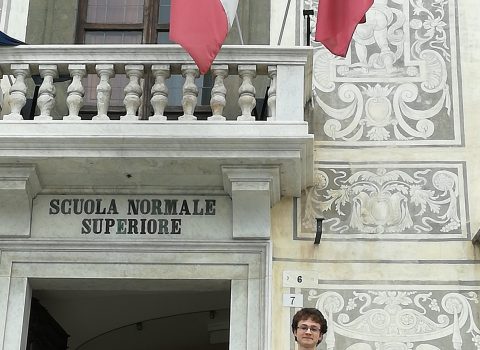
Interdisciplinarity. One of FBK’s assets
A review of the latest articles in FBK Magazine prompts us to identify the virtuous blending of expertise as one of the most striking features of research. We look at collaboration as a key idea for progress not only in knowledge but also in everyday life.
In a meeting we organized at the Italian-German Historical Institute as part of the “Book of the Month” series, we discussed the intellectual figure, admittedly not the easiest one to define. One very problematic aspect that emerged during the chat is the intellectual (whoever she or he is) who is only capable of locking herself or himself up in her or his own knowledge without opening to view exchanges.
Rereading the latest contributions published in FBK Magazine shows how the, precisely, intellectual variety of what we do at the Foundation lies very much in the virtuous intermingling of expertise, quite the opposite of isolation.
Let’s start with Viviana Lupi’s interview with Gian Maria Campedelli, about a research dedicated to the “most effective methods to reduce violence and the number of killings in Mexico”. Responding to a question about his profile, Marco Campedelli called it “rather hybrid.” Being hybrid, making available heterogeneous knowledge is a good thing since it often brings with it that ability to work in teams, in our opinion essential for good research.
At the end of the interview you will find similar articles, which are often dictated – let’s put it simplistically – by the algorithm, but are sometimes the result of an editorial choice, as is the case here. n fact, we decided to repost a piece written a few months ago by Erica Ravarelli, in which she pondered about the use of analytical methods and machine learning in the service of justice. There is, between the interview and the article, contiguity in topics, but also in methods and ideas that also allows us to recall that after the summer break the collaboration with “Vulcano Statale,” the journal of the University of Milan, is about to start again.
The list of what we have called “virtuous mixing of expertise” is long and constantly open: think of the Life Ecoempower project, which aims to drive sustainability in the European Union’s energy transition and is based on the work of an interdisciplinary consortium of ten partners. Think of the potential of industrial automation to act on economic inequalities, recounted in its complexity by Francesca Guerzoni’s interview with Piotr Lewandowski. And what about the Research Night event, that fascinating showcase of scientific and intellectual diversity.
Ultimately, looking at the life of the Foundation (and, may we also be allowed to look at how we try to tell it in FBK Magazine), we understand well how interdisciplinarity is really a way forward in trying to make the world we live in a better place.

